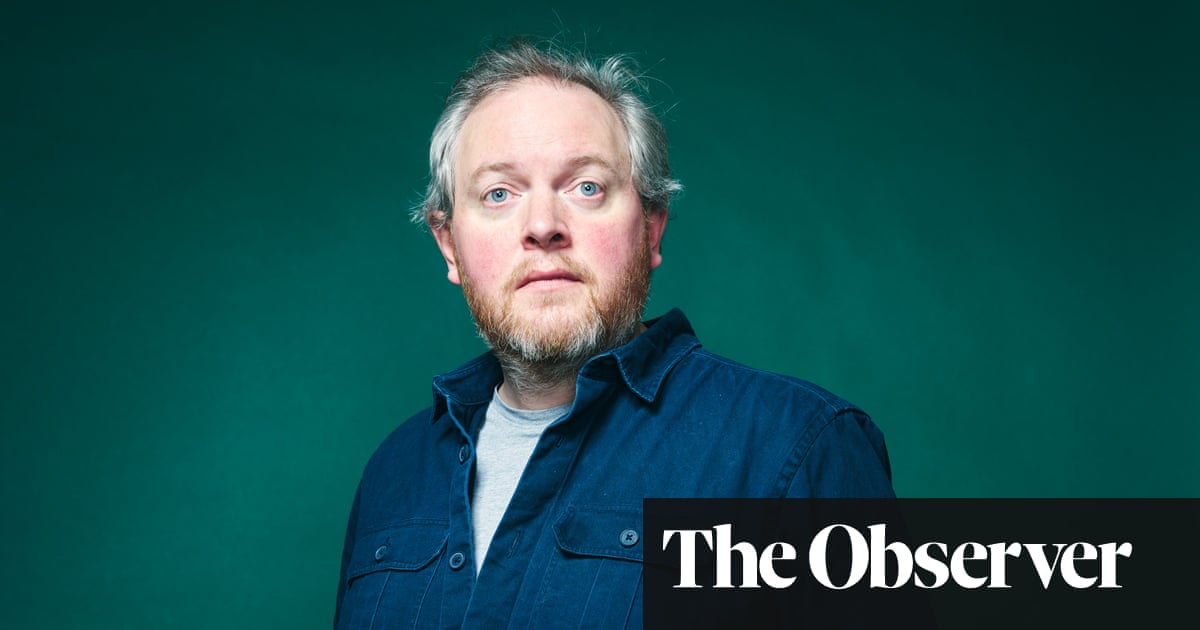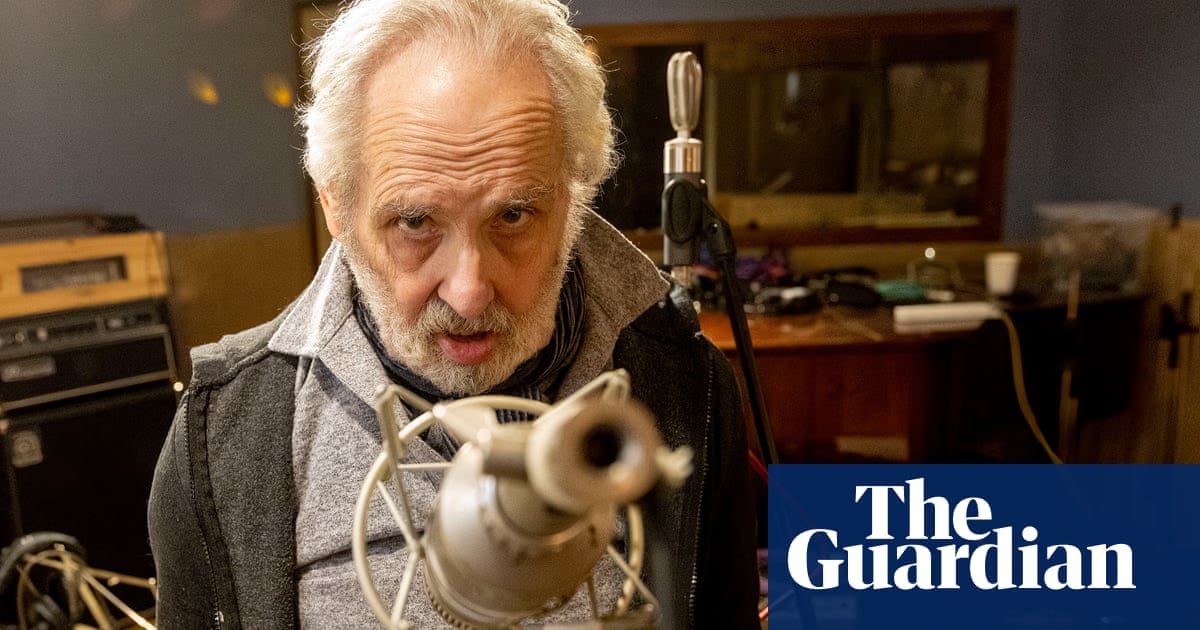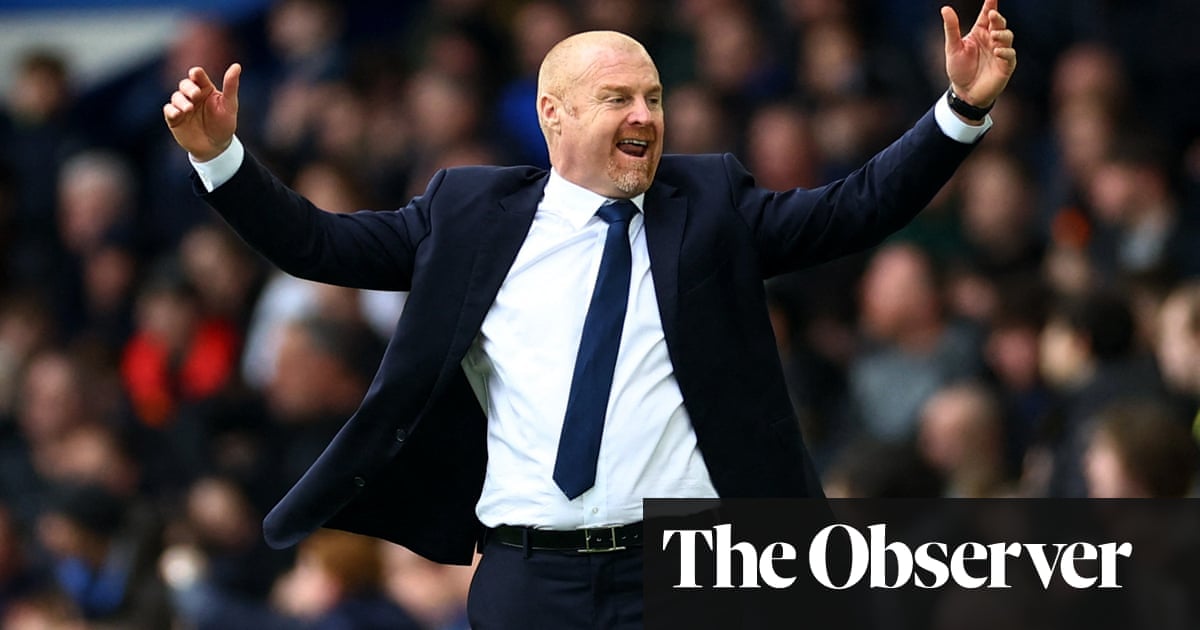
London-born Miles Jupp, 44, began performing comedy while studying divinity at Edinburgh University. After graduating, he embarked on a standup career. His screen acting credits include Rev, The Thick of It and Balamory on TV and, more recently, he played Emperor Francis I in Ridley Scott’s Napoleon. On radio, he hosted Radio 4’s The News Quiz for four years. He’s the author of three books including the 2021 novel History. This month, he begins his first standup tour for six years, telling the story of how he survived a benign brain tumour. He lives in Monmouthshire with his wife and five children.
Why is your new standup show called On I Bang?
It’s a phrase I find myself muttering when I’ve been talking for too long. I suddenly realise 15 minutes have passed while I’ve been ranting about unnecessary packaging or the price of train tickets. “Oh anyway, on I bang!” Now the phrase has a different meaning. I had a brain seizure and then major brain surgery, so I’m using it in a more celebratory way. How lucky I am to still be able to bang on?
What happened with your brain tumour?
I had no warning. One day, I was filming in London and suddenly saw flashing in the eyes. I knew very quickly something was seriously wrong. A short while later, I collapsed. Then I came around in A&E with someone saying: “There seems to be a growth that shouldn’t be there.” It all happened very fast.
Did you think you were a goner?
When this big thing goes off in your head and your whole field of vision explodes, you do think: “Is this death?” In hospital, waiting for scans, you don’t know if it’s benign or malignant. You’re not convinced you’re a goner but you are lying there with all this fear and uncertainty. You zoom out a bit and think: “Gosh, I need to have conversations with my family,” then it all gets a bit more terrifying.
What was recovery like?
I got home a couple of days after the operation to remove the tumour. I could walk the children to school straight away but I was low-energy and needed to nap quite often. I was also pumped full of drugs, so colours looked quite bright for a while. There’s a blissful period of grace when everything’s simply lovely. After six weeks, I eased myself back into working. The aim after brain surgery is to get back to being able to handle the unpredictability of life. Return to an adjusted normality.
Do you have a scar?
It’s currently concealed beneath my hairline but my hairline is… I don’t know for how much longer it will be concealed, put it that way.
Has the experience changed you?
I invited both of the surgeons to see me in a play a few months later. One of them said afterwards: “To be honest, if anything we’ve improved you!” So perhaps they tidied up some other things while they were in there. “While he’s unconscious, let’s stop him mumbling so much and make him less hungry all the time.” But the cliches are true. A brush with mortality makes you see everything through a very different prism. I’m very aware how lucky I am.
How did you go about mining it for laughs for your new show?
It’s an interesting, intense story, I think, and it’s about finding the lighter moments. And, of course, when you’re faffing around in a backless hospital gown or getting intimate swabs, there are any number of opportunities for indignity.
Your tumour was the size of a cherry tomato. How do you feel about cherry tomatoes now?
Still a big fan! There are some in my fridge and they look very appetising. I had this bizarre discussion with the two surgeons. Afterwards there was a tiny bit of the tumour left in, just because it was against a nerve. One said it was “about the size of half a pea”. The other said: “Oh no! I’d say it was smaller. I suppose it depends on what size pea.” I said: “Guys, you really need a different unit of measurement here. Is there a non-vegetable-based answer, before we get wrapped up in beans or pulses?”
How was playing Francis in Napoleon?
Really exciting. The scale was massive, but Ridley shoots really quickly with six cameras. He goes: “Let’s crack on with it,” and then: “OK great, happy with that.” It’s 10.15am and you think: “I’d been geeing myself up for a longer day, to be honest.” You have to put any sense of awe aside and do your job. I was once in a film with George Clooney and got really nervous. Then after half an hour, I realised he’s just at work. We all are.
What did you make of Ridley Scott’s, ahem, robust response to complaints about historical accuracy?
As Ridley said, there’s been a book published about Napoleon every two weeks since the end of his life, so there are all sorts of opinions. Also, he’s made entertainment. He said at the premiere: “Remember you can laugh at some of this, we’re having fun.” And he’s 86. If people have a pop and he can’t be arsed dealing with it, that’s totally acceptable.
You were in the TV sequel to The Full Monty last year. Did you think you might need to strip?
Mercifully, it was explained very early on that it wasn’t required. Had it been, presumably I wouldn’t have been involved. Some sort of arrythmic man recovering from neurosurgery!
What’s in the pipeline for you?
I spent several months last year making [the period drama] Belgravia: The Next Chapter – just going around stately homes in a big pair of stick-on sideburns, which was fun – and that’s coming out soon. I’m touring for a chunk of this year, then I’d like to write another travel book. I also love writing scripts with [Radio 4 regular] Justin Edwards. If we can stop drinking smoothies, talking nonsense and get our arses in gear, we’d like to do a road movie together.
Are you optimistic about 2024?
Well, I mean, no. I hate to end on a downer but the world at large is quite grim and terrifying. What the hell’s going on out there? But there are also lots of things to be thankful for. Is that any cheerier?












